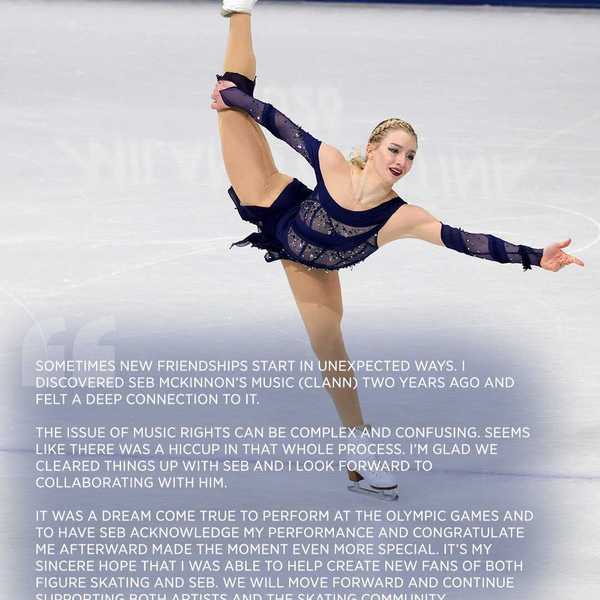The Covid Chronicles – MusiCounts' Kristy Fletcher
The Executive Director of Canada’s leading music education charity explains the launch of MusiCounts Learn, a program that encourages students to continue their music education at home.

By Jason Schneider
Kristy Fletcher is the Executive Director of MusiCounts, Canada’s leading music education charity that puts musical instruments into the hands of children who need them most.
Through initiatives created in partnership with CARAS and the Juno Awards, such as the Band Aid Program and the MusiCounts Teacher of the Year award, Fletcher aims to keep creating lasting and sustainable partnerships between MusiCounts and corporate sponsors, Canadian artists and individual donors to generate national awareness about the importance of music education.
During the covid-19 pandemic, as music classes in schools are on hold, MusiCounts continues to support teachers and parents via a new program called MusiCounts Learn, which encourages students to continue their music education at home.
MusiCounts Learn consists of online and offline information to assist teachers in facilitating remote music education, and to help parents and caregivers discover creative ways to make music at home with their kids. It features a searchable database of music education resources, and blogs and vlogs curated by Canadian teachers.
Users can also participate in virtual town halls with teachers and artists to discuss the impact of covid-19 on music education in Canada, as well as explore virtual remote music education lessons, webinars, videos, and social media live streams. We caught up with Kristy Fletcher to find out more, and full details are available at musicounts.ca/musicountslearn.
Your new program MusiCounts Learn has shifted focus online. What was the process like setting that up, and having to do it so quickly?
When our environment rapidly changed due to covid-19, and in-person schooling was halted, we knew this would present a significant challenge for music education in Canada. At the same time, we recognized an opportunity and knew that we needed to do our part to ensure kids still had access to music education while at home. Music is an essential part of education for all youth, and maintaining this during the pandemic quickly became our priority.
As a result, we immediately convened our national committee of music educators to determine how we could most effectively support music education during this time. And from those conversations came MusiCounts Learn. The new program offers a curated hub of resources and events to help teachers and parents facilitate music from a distance. It also includes a blog series that invites teachers, parents and artists to share their ideas and perspectives on teaching music remotely.
What has the response been like so far from teachers and parents?
Great! It has been inspiring to see educators from across Canada come together through our blog series, collaboratively finding solutions to keep kids making music at home in these unique times.
On May 19 we hosted our first virtual Town Hall with four music teachers from across Canada. The conversation was focused on how covid-19 is impacting music education in Canada. The outcome of the conversation was optimistic: Although school closures are presenting numerous challenges, this is also fostering a huge amount of innovation that may ultimately redefine how music education is approached in the future. The feedback was so positive, we are planning more Town Halls over the coming months.
Teaching music in school obviously relies on personal interaction. Do you think online lessons can become a new component moving forward?
Nothing can replace the benefits that come with making music in a choir, ensemble, or band. What we’re becoming increasingly aware of, though, is the fact that in-person music-making is only one facet of what music education can offer. Music is such a flexible, adaptable and interdisciplinary subject that can play an important role in any online curriculum. As Andrew Mercer, one of our Town Hall panelists, so perfectly put it, “Let’s not focus on the things that we CAN’T do, because that’s easy. Instead, let’s focus on the things we CAN do. It’s compelling what we can do, so let’s get at it!”
Do you think the pandemic experience will have a lasting impact on how kids relate to music and create it?
Ultimately, yes. Since March, many lives have been negatively impacted, and the world is in such an unprecedented place. Despite this, music has proven to be a reliable and relevant way for people to cope and connect in these trying times. The outpouring of online concerts, live streams, and yard and balcony performances are just small indications of this. It truly feels like covid-19 has reinforced how important music is in our lives.
Similarly, we’ve been hearing from teachers across Canada that music continues to be an outlet for their students while they're stuck at home, isolated from their friends and school community. Though it might be easier to imagine how a math class or history class might move online, the subject that so many kids are truly engaged with from a distance is music. That is because the possibilities for online music education are truly endless. Some teachers have their students explore the huge amount of online music-making tools that are out there. Others encourage their students to pursue more low-tech options, like performing for their pets, or interviewing their relatives about what music is important to them.
All that being said, music education was put to the ultimate test when schools closed in March. Since then, educators, parents and students have all come together, saying loud and clear that music education is essential, even under the most trying of circumstances.
Many students shared instruments before the pandemic and that’s a problem when schools reopen. What can be done to eliminate the lack of resources and musical instruments within schools?
We’re conscious of the fact that people aren’t going to be as relaxed sharing instruments, even if proper cleaning protocol is followed. This is where MusiCounts will continue to do what we do—fill in the gaps to ensure there are enough resources in classrooms for all students. We will also continue to provide new and creative ways for students to interact and engage with music, beyond a traditional ensemble environment. MusiCounts Learn will be a central part of helping to make this happen.

















